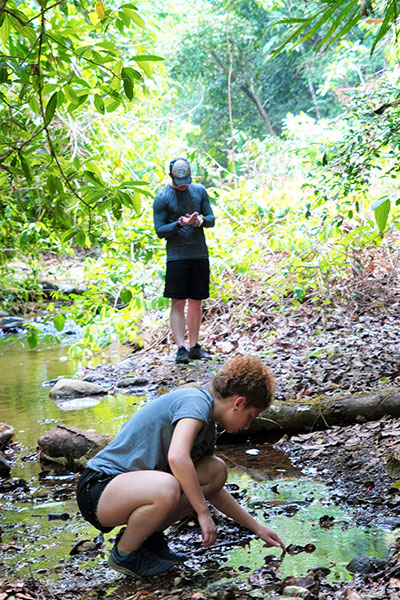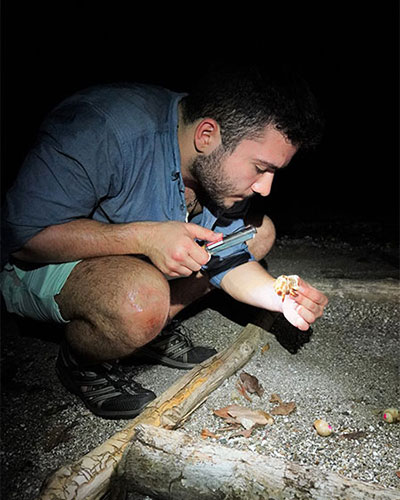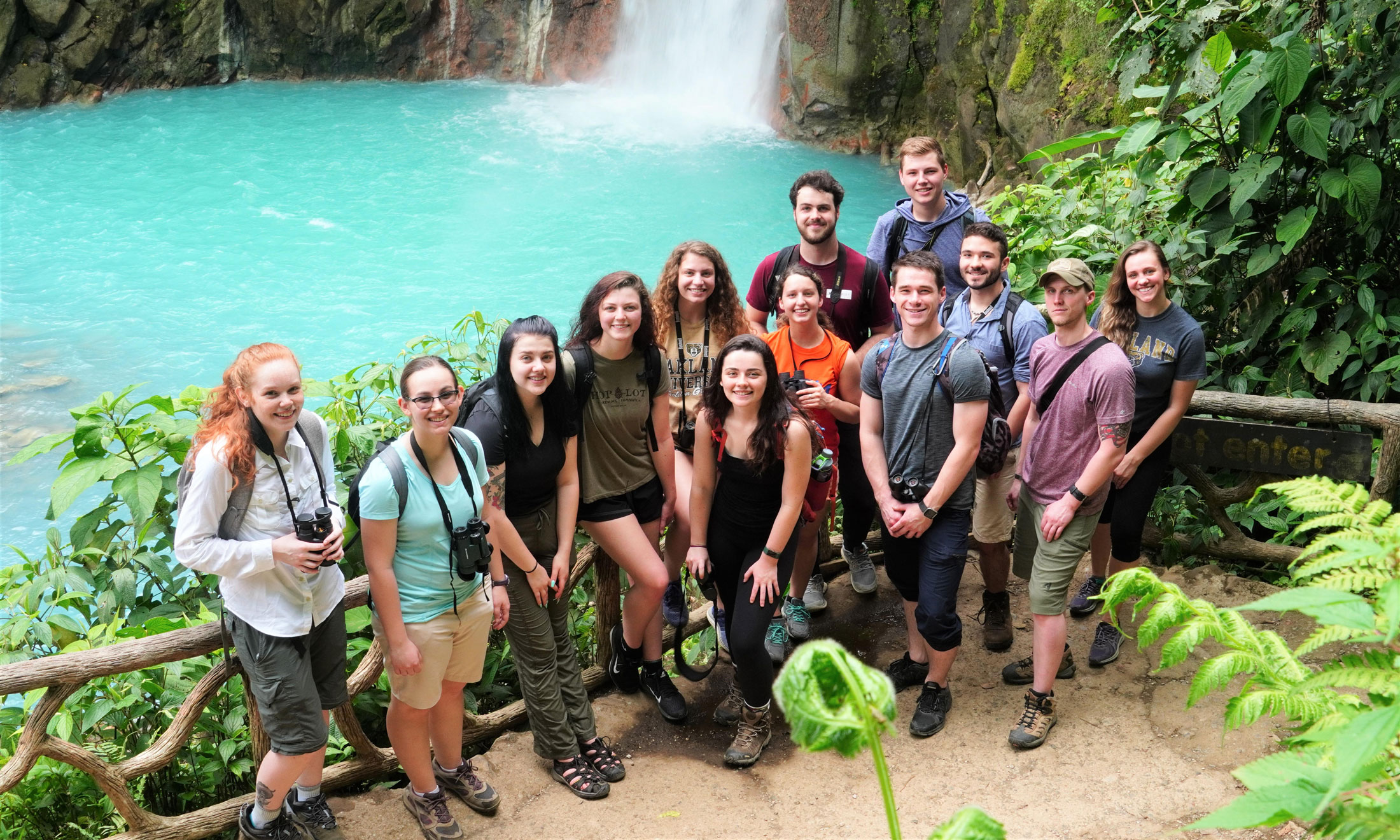Students study tropical field ecology in Costa Rica

Destiny Stock and Dylan Pattullo sample invertebrates in a stream in Carrara National Park.
For Macy Jackson, studying abroad opens the door to experiences that simply aren’t possible within the U.S. The environmental science major was among a group of OU students who recently spent 10 days in Costa Rica for a class in tropical field ecology.
“Being immersed in the natural world gives me the opportunity to better understand ecosystems that exist in different biomes,” she explained. “Most of the United States does not exist within the band of latitude that is considered the tropics, so this class exposed me to aspects of ecology that I would not be able to study in the field at home.”
For the past nine years, Scott Tiegs, associate professor of biological sciences, has organized trips to Costa Rica for his Biology 4333 class, which immerses students in an array of ecosystems, including rainforests, dry forests, cloud forests, wetlands, rivers and streams.
“Textbooks and classroom experiences can only take you so far,” Tiegs said. “By the end of this course, the students have a much better appreciation of how diverse the tropics are in terms of the types of ecosystems and organisms that can be found there.”
Throughout the experience, students kept a journal detailing their adventures and the vast array of animals and plants they observed.
“If people do not understand why and how the environment impacts their lives, they cannot advocate for its conservation.”-Macy Jackson, environmental science major |
Biology major Lacey Davis noted 148 bird species, including “scarlet macaws and black mandibled toucans, as well as mammals such as coatis, Mexican porcupines and howler monkeys.”
“We also did invertebrate sampling in various streams, went kayaking in mangrove forests and saw the Pacific Ocean,” she added.
Biology major Chandler Schneider said the class appealed to his love for adventure, travel and animals.
“Some of my personal highlights were estimating population size of hermit crabs on the beach at La Enseñada, the boat rides at Caño Negro and La Enseñada, all of the hikes, including those at Tenorio Volcano National Park and Carara National Park, as well as many others.”

Victor D'Uva works on estimating hermit crab population density in the intertidal of the Gulfo de Nicoya.
For the first few days of the trip, the group stayed at La Selva Biological Station, which is owned and operated by the Organization for Tropical Studies, a consortium of universities and research institutions from the United States and Costa Rica.
“I really enjoyed staying there because we were able to walk around the property and see the housing and labs for students and researchers,” said Jackson. “It made me thankful that this trip was not only beneficial to me and the other students, but also to international research.”
The trip also allowed Jackson to pursue one of her biggest interests – bats.
“Dr. Tiegs allowed me to devote some time to searching and identifying local bat species and made an effort to also be enthusiastic about my interests,” she said. “During our 10 days, I was able to see five new species of bats, most of which cannot be found in the U.S.”
Costa Rica was Jackson’s second study abroad experience with Tiegs, who also leads a tropical field ecology course in Ecuador. Both of these experiences have deepened her devotion to learning about and advocating for the environment.
“In the future, I would like to have a career in environmental education, and I really believe that, without education, attempting preservation is futile,” she said. “If people do not understand why and how the environment impacts their lives, they cannot advocate for its conservation.”
OU’s tropical field ecology course is made possible through extensive planning and collaboration between the Provost's Office, College of Arts and Sciences, Department of Biological Sciences, Graham Health Center and International Education.


 June 17, 2019
June 17, 2019

